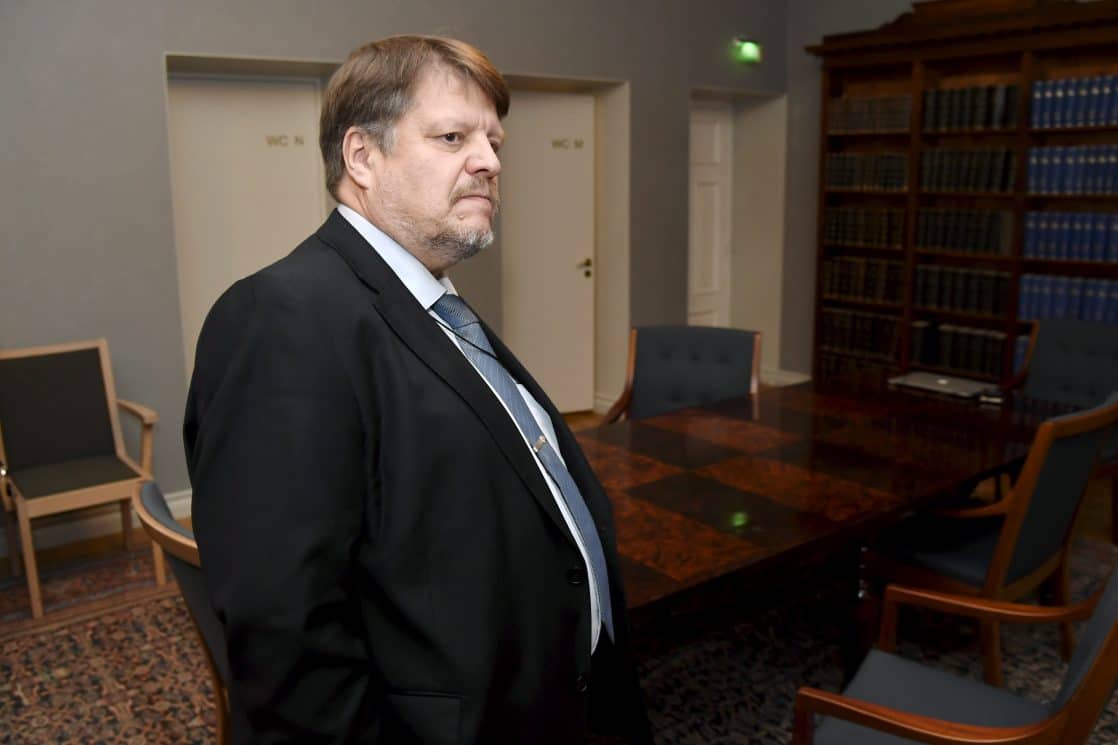As part of our initiative to promote the people’s right to know, our researcher Lorenzo Domizi interviewed Finland’s first “Intelligence Ombudsman”, Mr. Kimmo Hakonen. As the Daily Finland reported, the watchdog position was established on 17 April 2019 “as part of the legislation that widened the powers of both the national security police as well as the military intelligence”. Mr. Hakonen, a lawyer and a civil servant with experience within the Department of Penitentiary Administration, the Ministry of Justice and the Ministry of Interior, “will have complete access to all intelligence gathering data and operations in order too ascertain the legality of intelligence operations”.
LD: Could you describe what this new position, the “Intelligence Ombudsman”, is about?
KH: The Intelligence Ombudsman oversees the legality of civilian and military intelligence activities. The Intelligence Ombudsman is present during the considerations by a court of the authorisation of intelligence methods and checks the decisions concerning the use of intelligence methods made by the intelligence authorities. The Intelligence Ombudsman may order that the use of an intelligence method be suspended or ceased if he or she considers that the intelligence authority has acted unlawfully. The Intelligence Ombudsman submits his or her relevant oversight observations to the Intelligence Oversight Committee of Parliament for consideration and submits an annual report on his or her activities to Parliament, the Parliamentary Ombudsman and the Government.
Do you think that Finland and democratic countries at large are affected by a culture of secrecy and/or by an excessive use of state secret?
In Finland and other Nordic countries there is a long tradition of openness of the activities of the authorities. In Finland the publicity of the documents of the authorities is one of our basic rights and liberties. According to the Constitution documents and recordings in the possession of the authorities are public, unless their publication has for compelling reasons been specifically restricted by an Act. The secrecy obligations are specified in the Act on the Openness of Government Activities. Some of the secrecy obligations are linked to the national security. The maintaining of the national security is at its most extreme securing democracy, the rule of law and the system of basic rights and liberties in the state in question.
It is essential that the duties and powers of the (security) authorities are defined precisely and clearly in a democratic process and that the use of the powers is under effective parliamentary oversight and legality control. As far as the well-argued secrecy of the activities of the authorities is concerned the democratic nature of the state and the common participatory rights of the individuals should be implemented indirectly by the parliamentary oversight and the rule of law and the legal protection of individuals by the legality control. In my opinion the Finnish system meets these requirements.
How do you deal with Chinese influence both in the civil and military sphere?
As an overseer of the legality of the activities of the Finnish intelligence authorities I am not willing to judge activities of other countries.
In the 2019 Report on extreme poverty and human rights, Philip Alston UN Special Rapporteur, warned against the digital welfare state. He wrote: “citizens are becoming more visible everyday to their governments, but not the other way around“. What do you think about it?
The system of basic rights and freedoms means not only an individual’s shield against the activities of the state but also the state’s responsibility to protect the basic rights and freedoms of individuals, for instance personal security and the right to adequate social, health and medical services, and more collective basic rights and freedoms, for instance the health of the population and the right to a healthy environment.
When protecting basic rights and liberties, for instance the publicity of the documents of the authorities, the freedom of expression, the right to privacy and the right to personal integrity and security, rights and liberties should be balanced with each other. It is essential also here that the duties and powers of the authorities are defined precisely and clearly in a democratic process and that the use of the powers is under effective parliamentary oversight and legality control.
The Global Committee for The Rule of Law “Marco Pannella” and the Radical Party presented a draft resolution about the Right to Know in the Parliamentary Assembly of the Council of Europe. Would you support a resolution like that?
As an overseer of the legality of the activities of the Finnish intelligence authorities I am not willing to take a stand on a matter under consideration by the Parliamentary Assembly of the Council of Europe. My impression is that in Finland democracy, the rule of law and the system of basic rights and liberties are protected properly.

